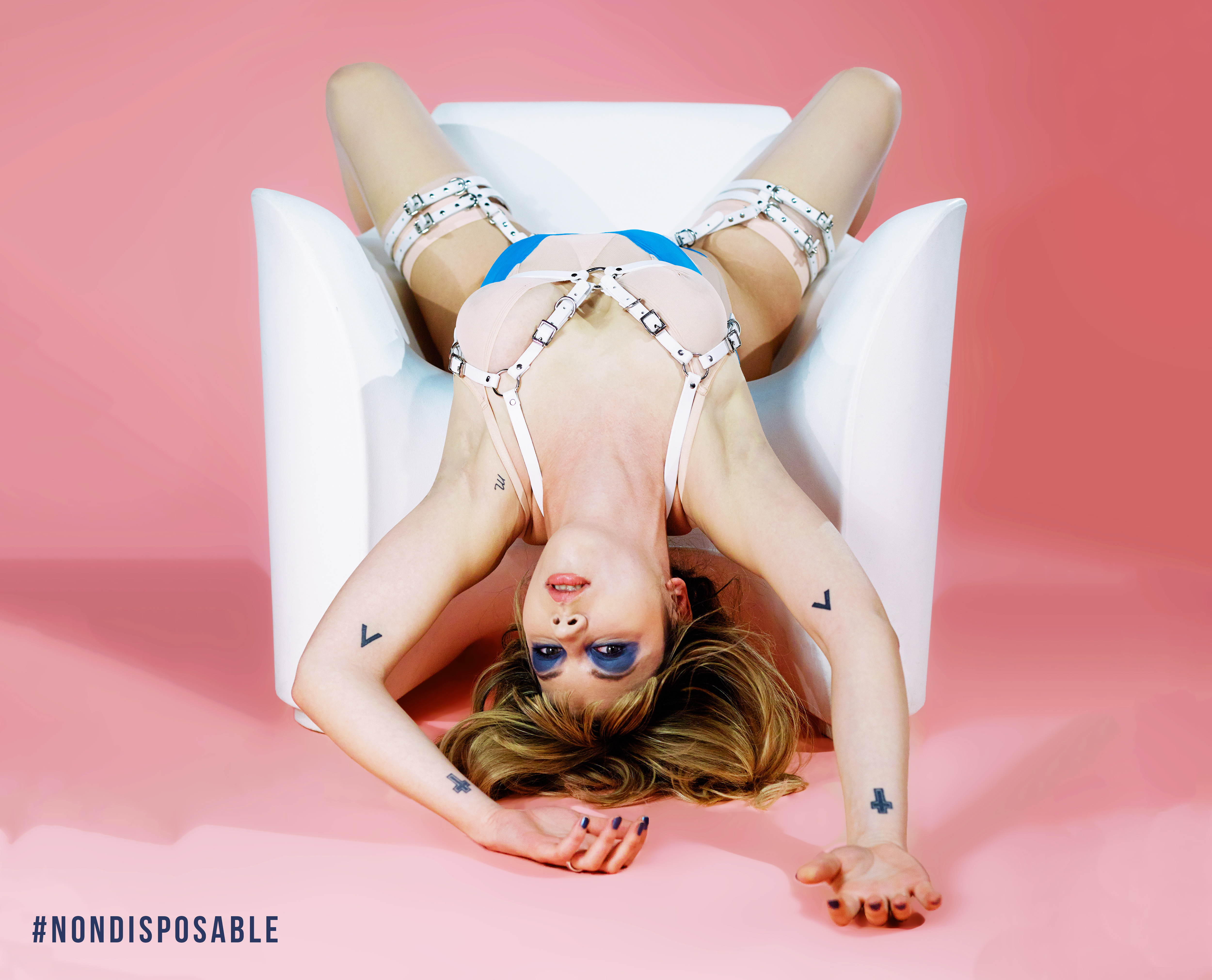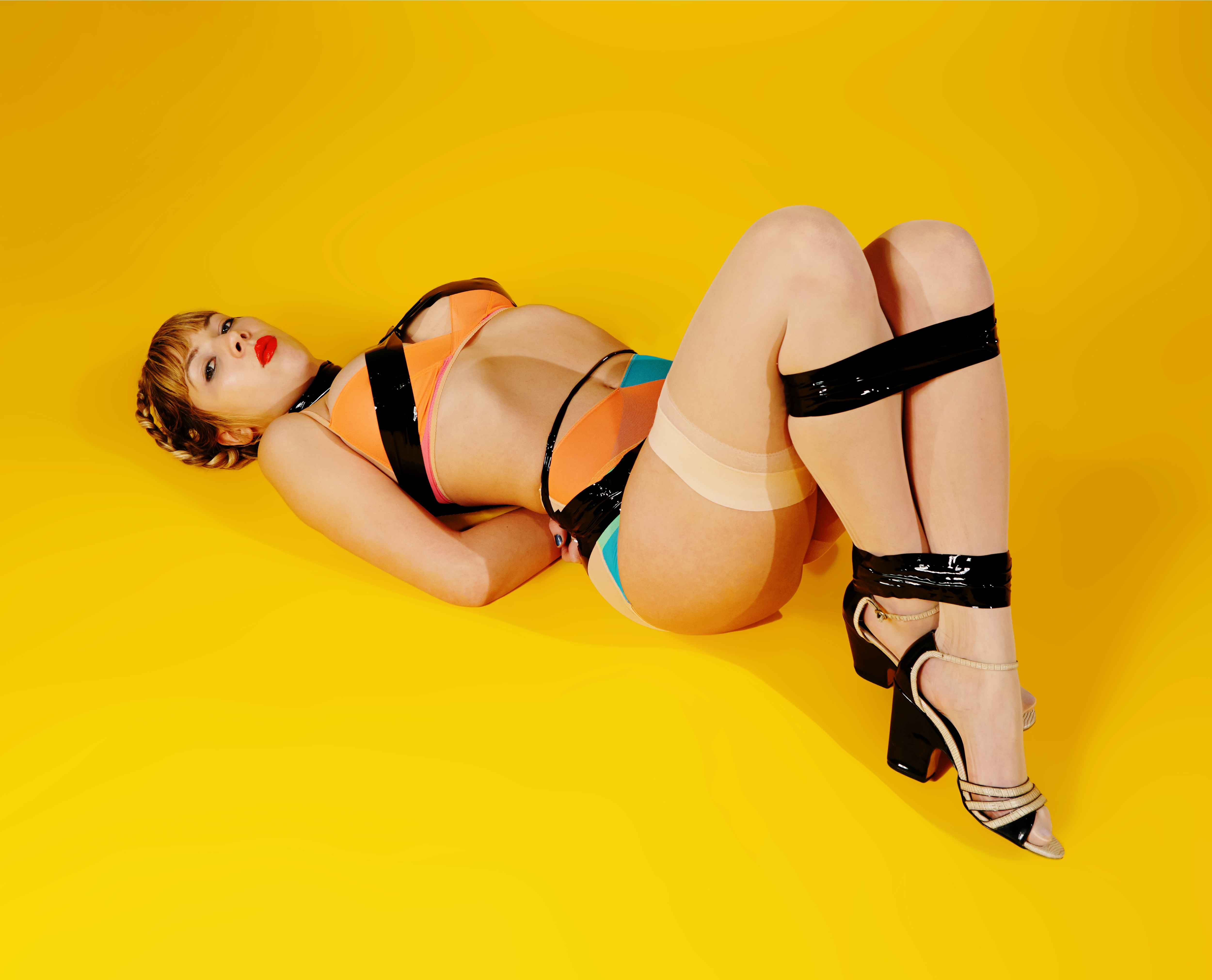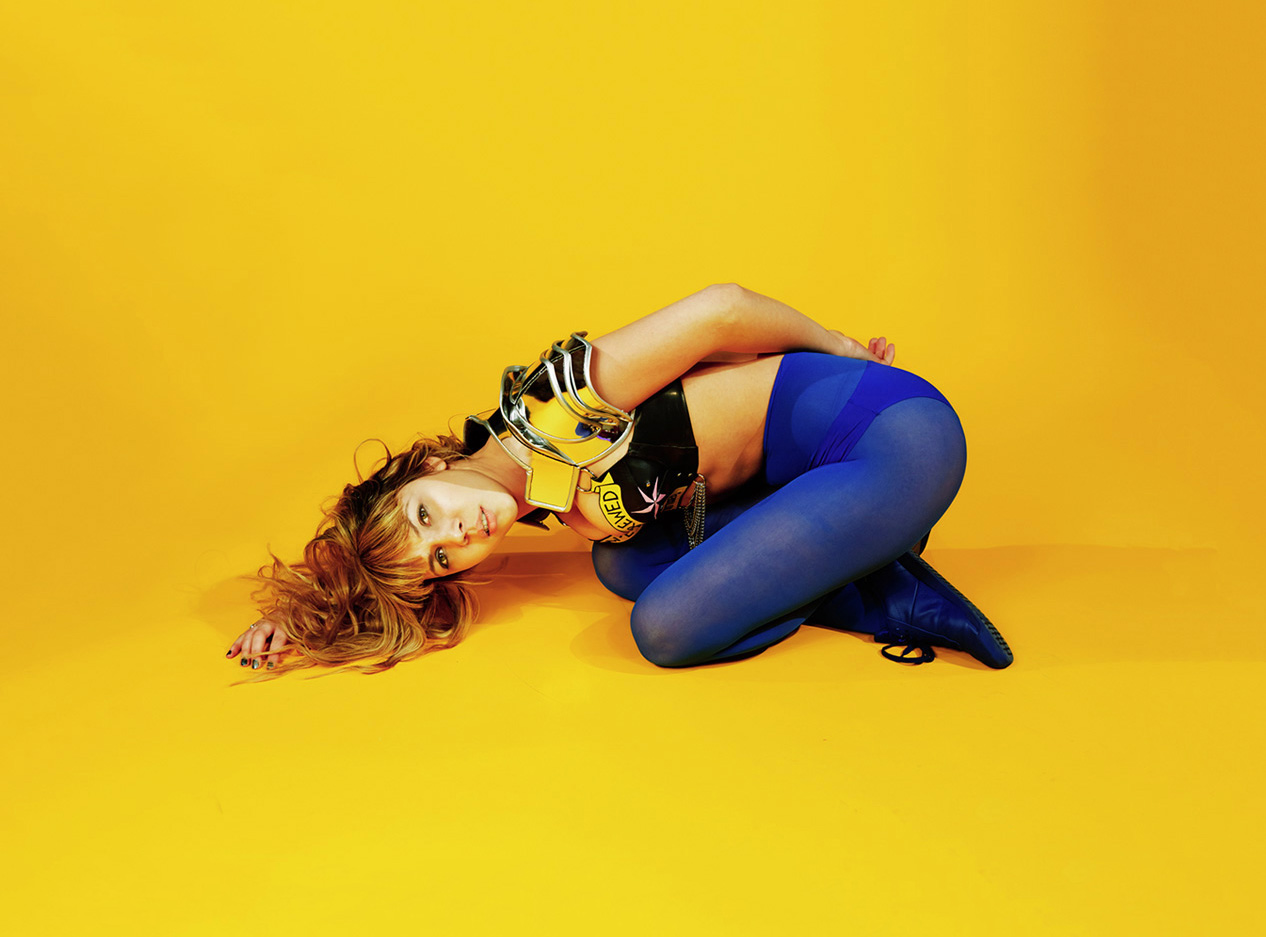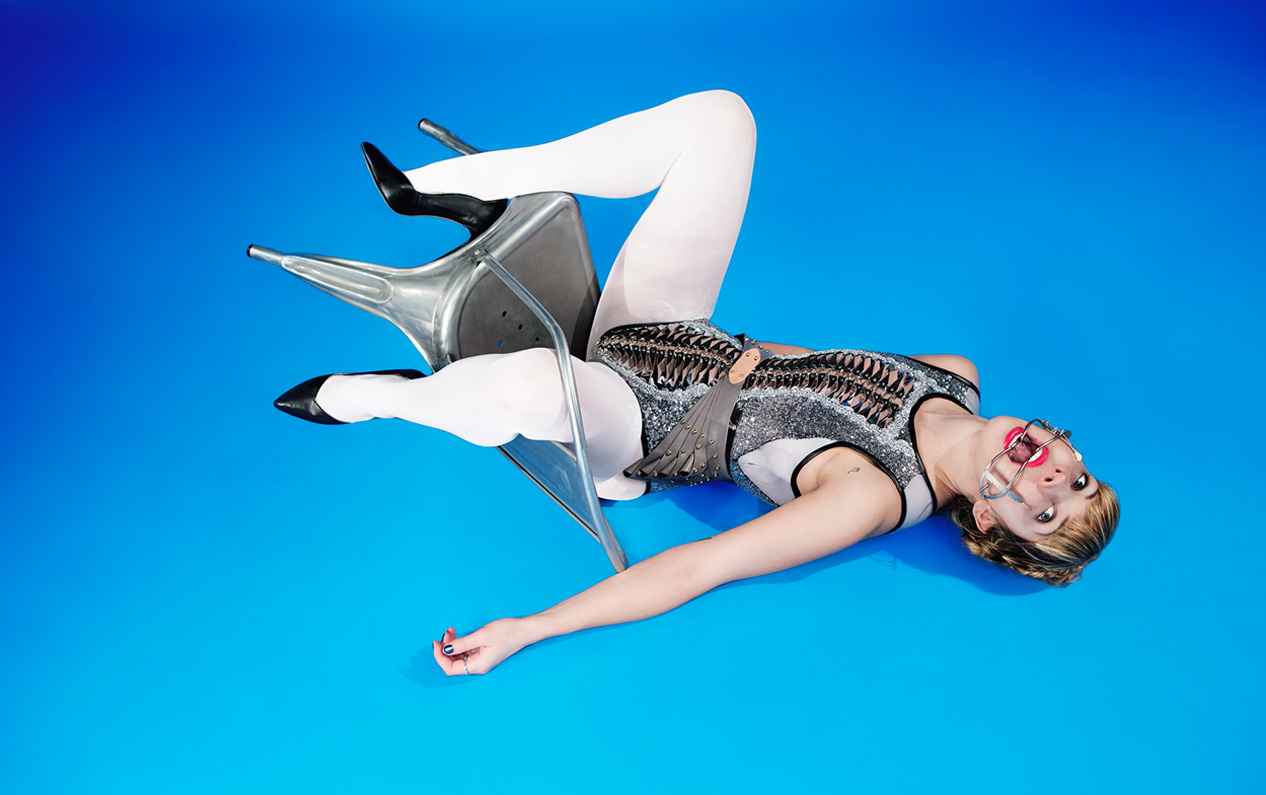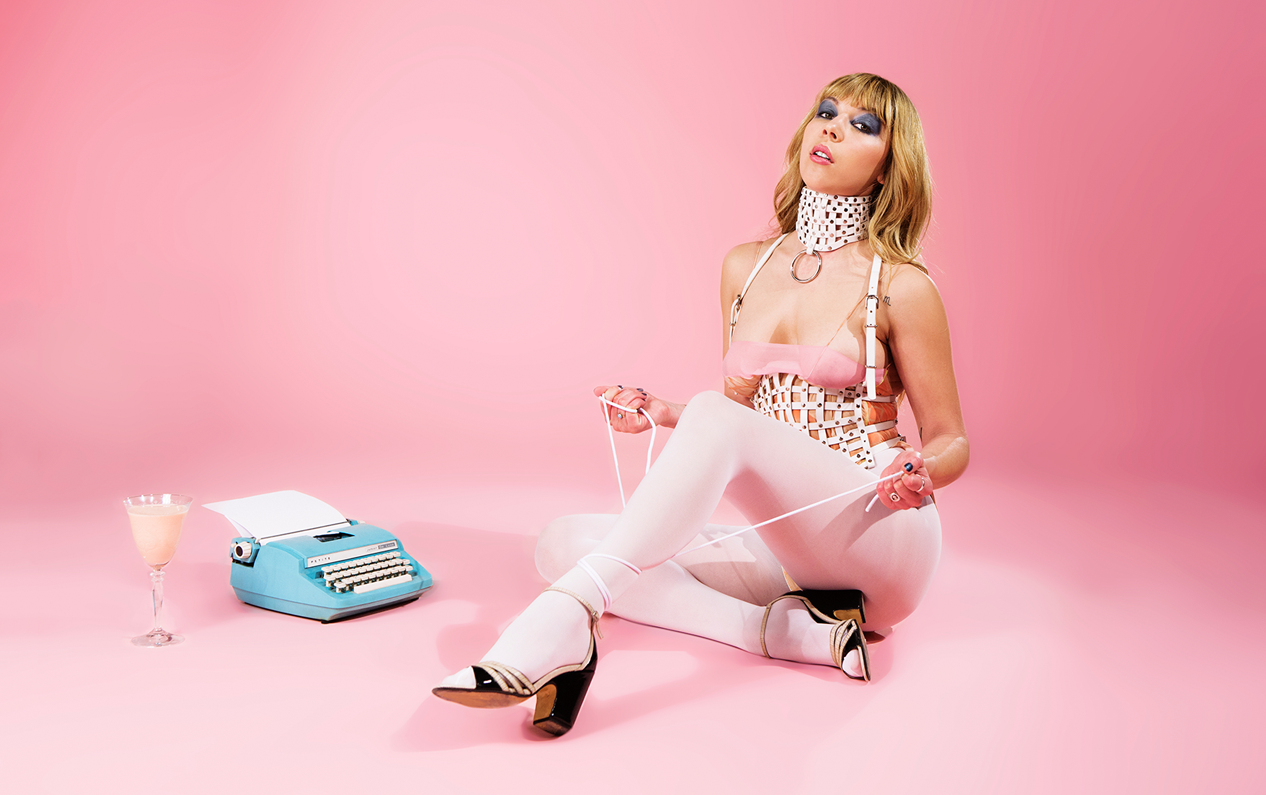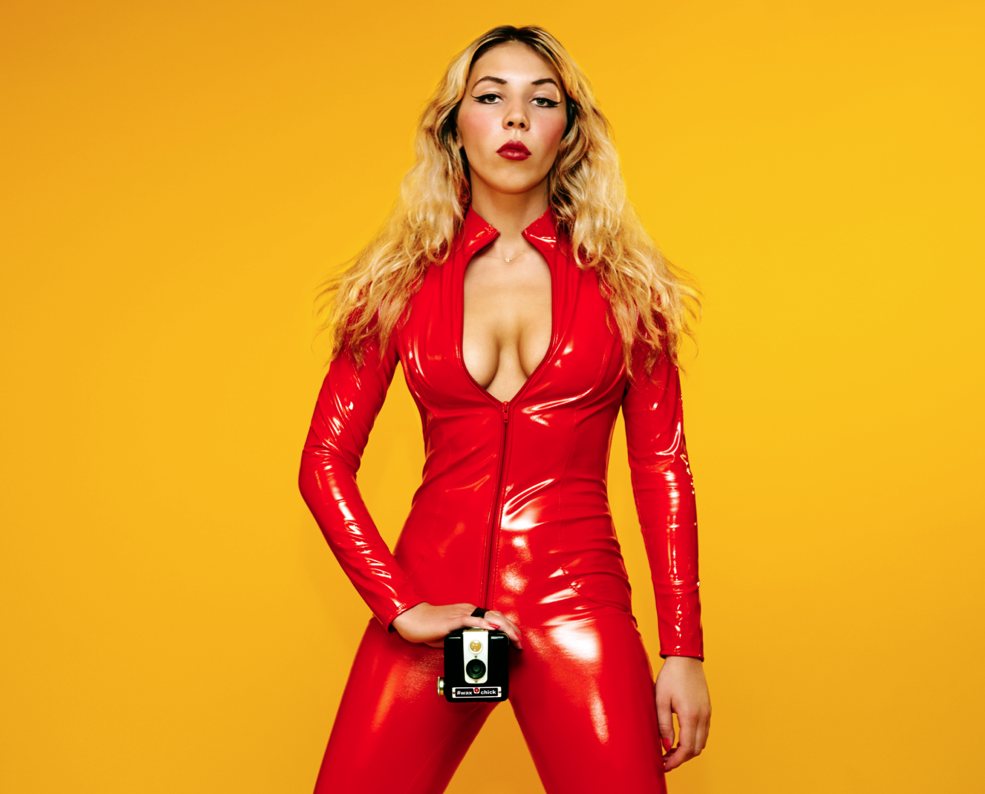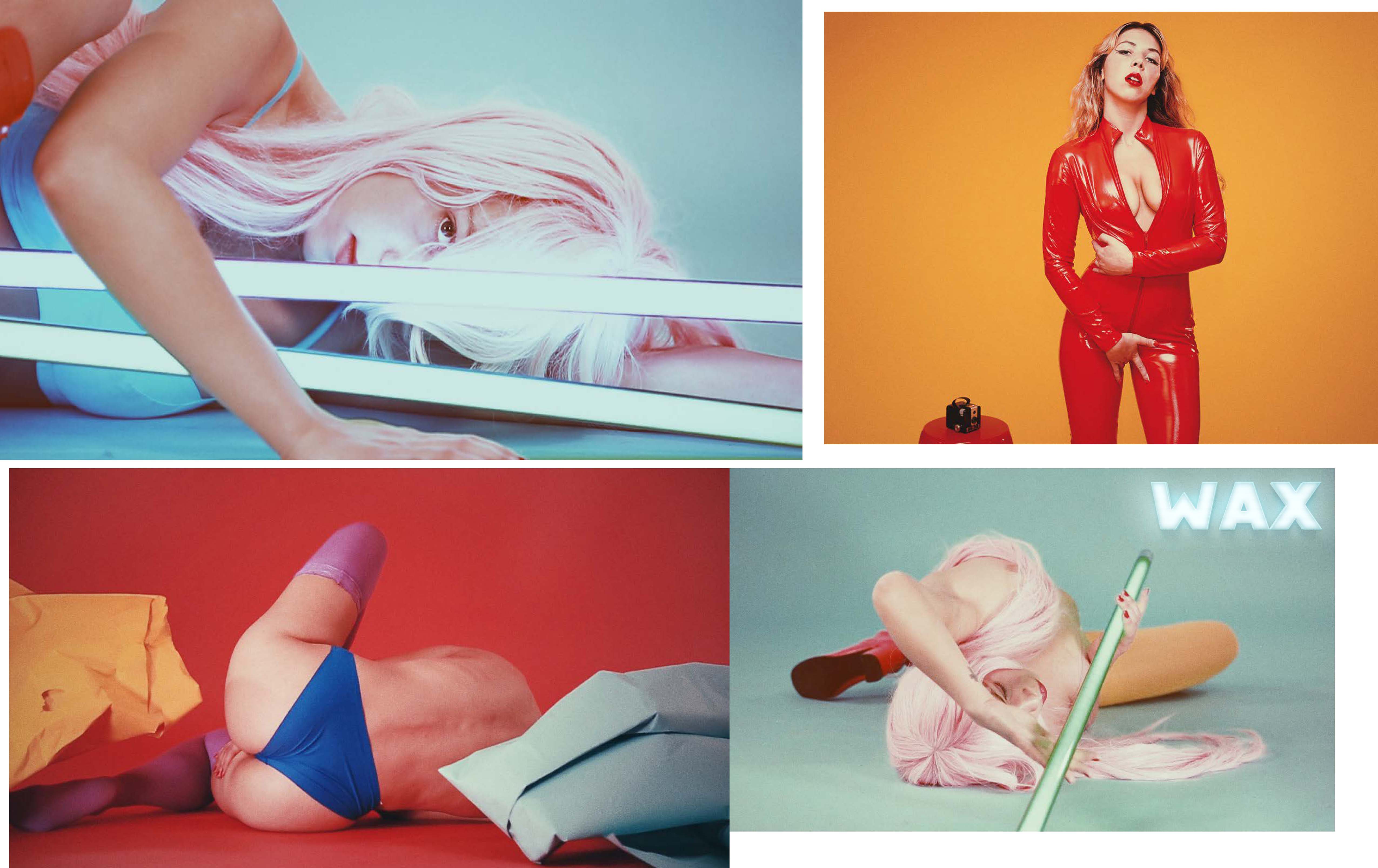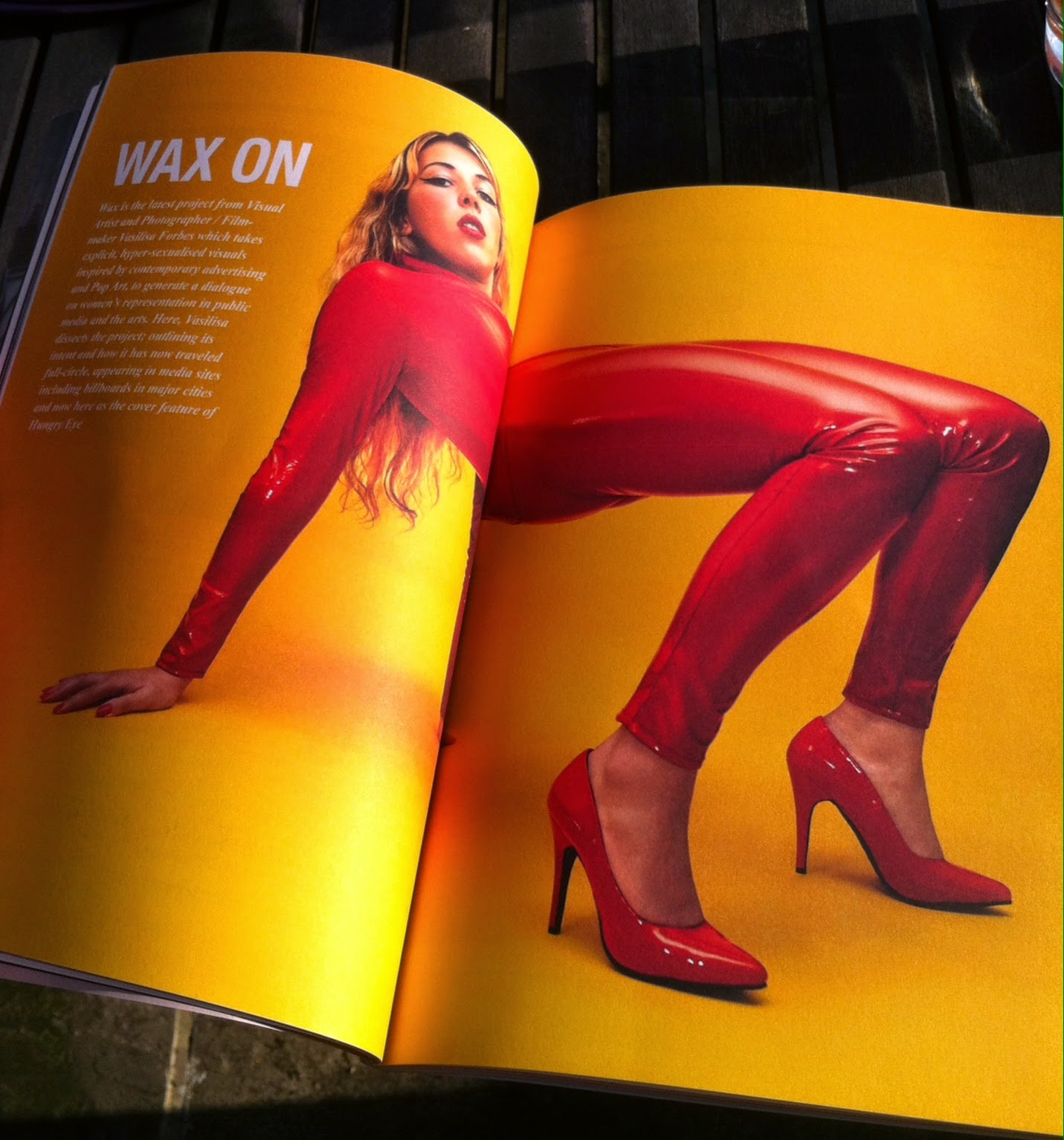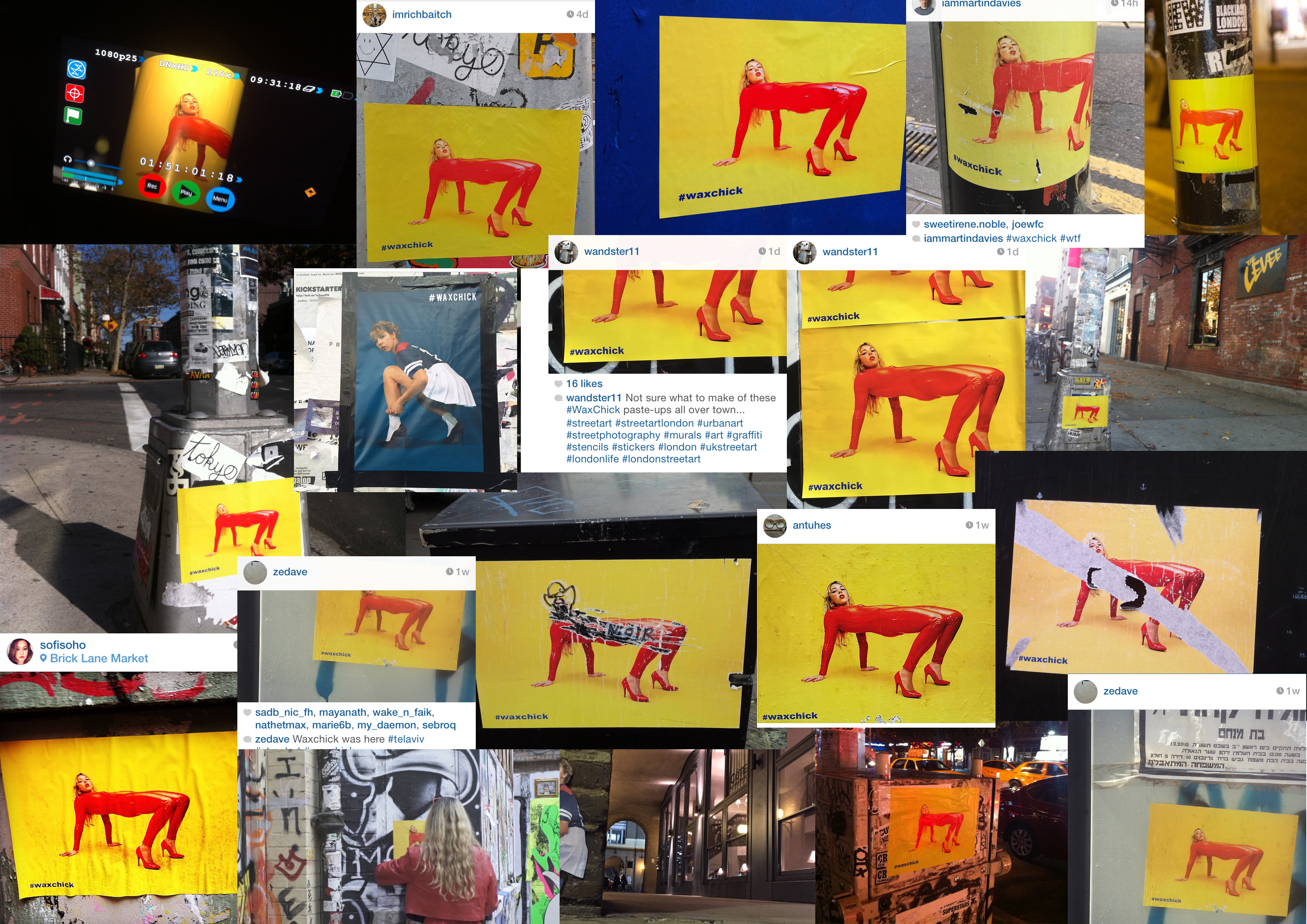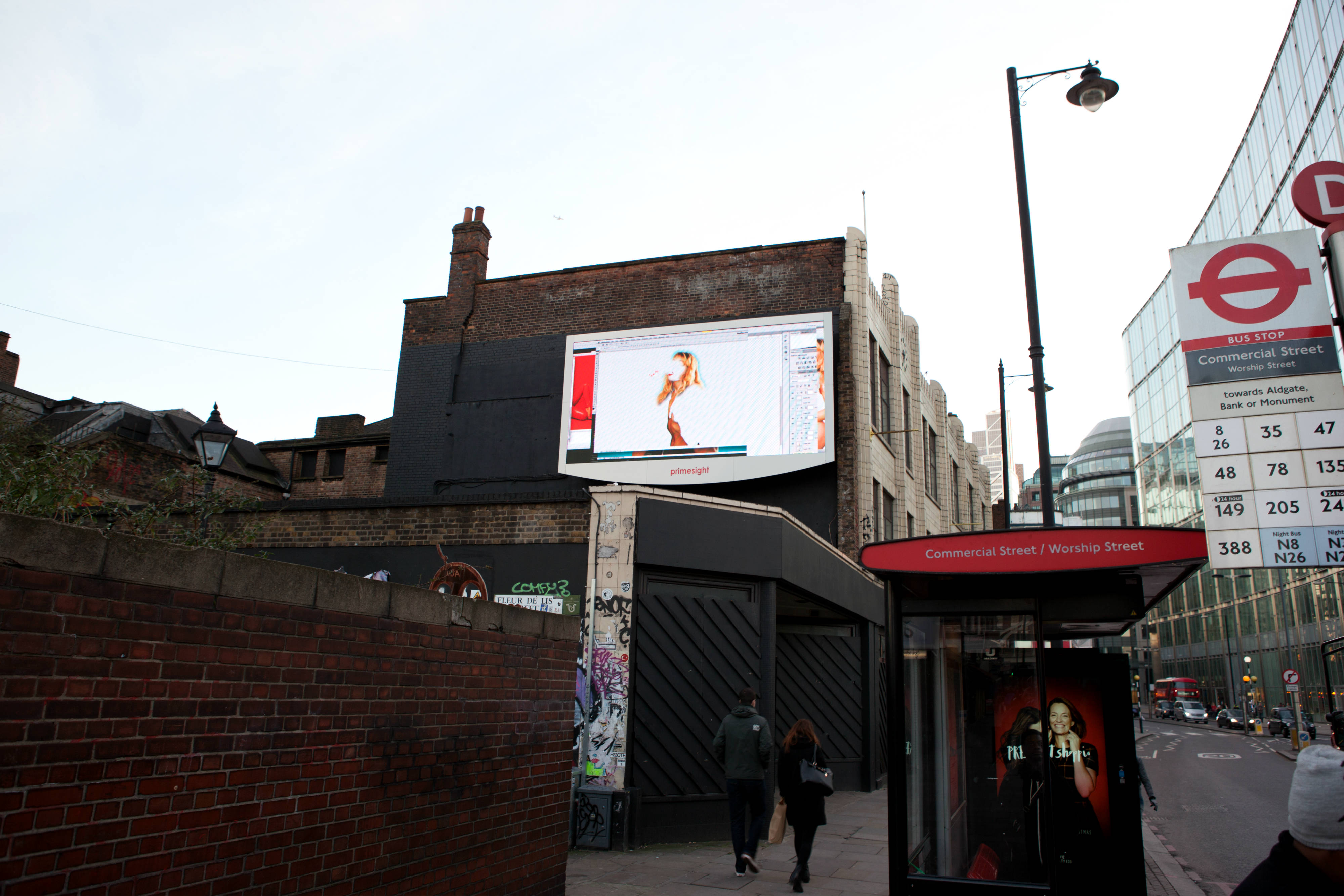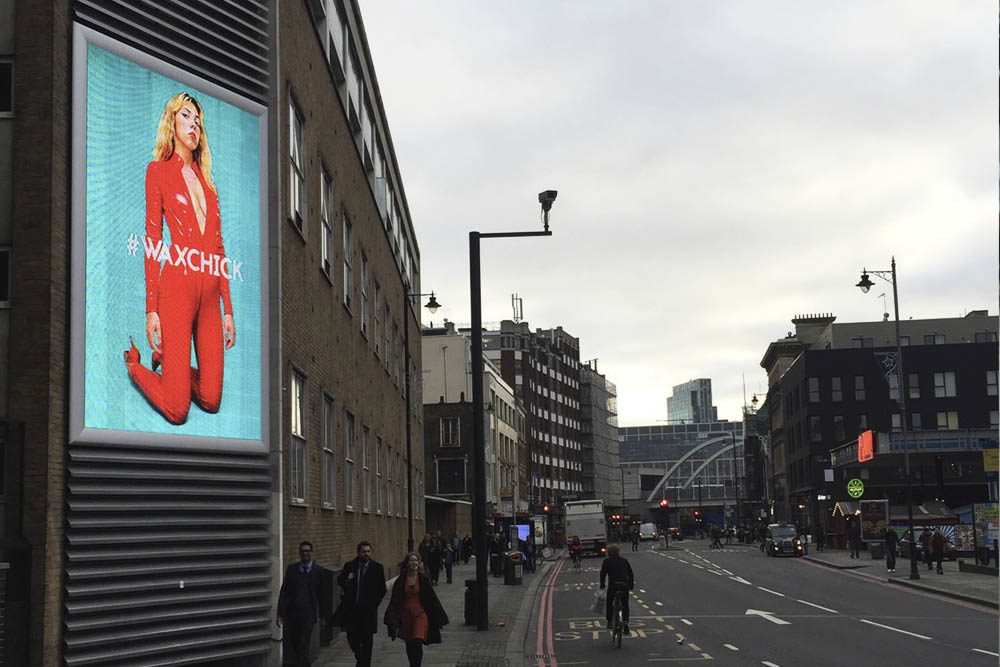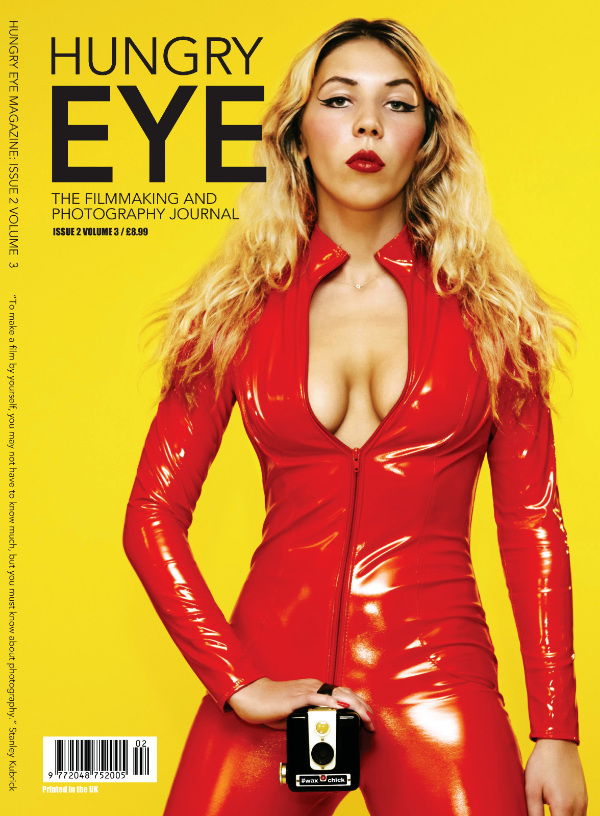
WAX raises a discussion of the visual identity of capitalist selling, objectification of the female body and the impact of popular-culture images of women. The fact we see these images projected in large format across the London cityscape directly addresses the public and our perception of public-to-private art, as well as notions of street art display against advertising. The WAX images address questions in young women of 'taking back ownership of the body' and how women choose to present it.
The 'photoshop-perfect' WAX images take cues from historical portraits, (which reference the art-worlds usage of objects as presentations of glamour) and through this the objectification shown in Wax becomes directly sexual and immediately a comment on the 'woman's role' and part she plays in advertising items, including within art works.
Vasilisa's aim is to create a sensation of 'power play' with the historical ideal of how women should be presented in an image, and the modern aspiration of young women, including the element of aggressive sexuality and male fantasy to fuel the actions behind the poses in the series.
The 'photoshop-perfect' WAX images take cues from historical portraits, (which reference the art-worlds usage of objects as presentations of glamour) and through this the objectification shown in Wax becomes directly sexual and immediately a comment on the 'woman's role' and part she plays in advertising items, including within art works.
Vasilisa's aim is to create a sensation of 'power play' with the historical ideal of how women should be presented in an image, and the modern aspiration of young women, including the element of aggressive sexuality and male fantasy to fuel the actions behind the poses in the series.
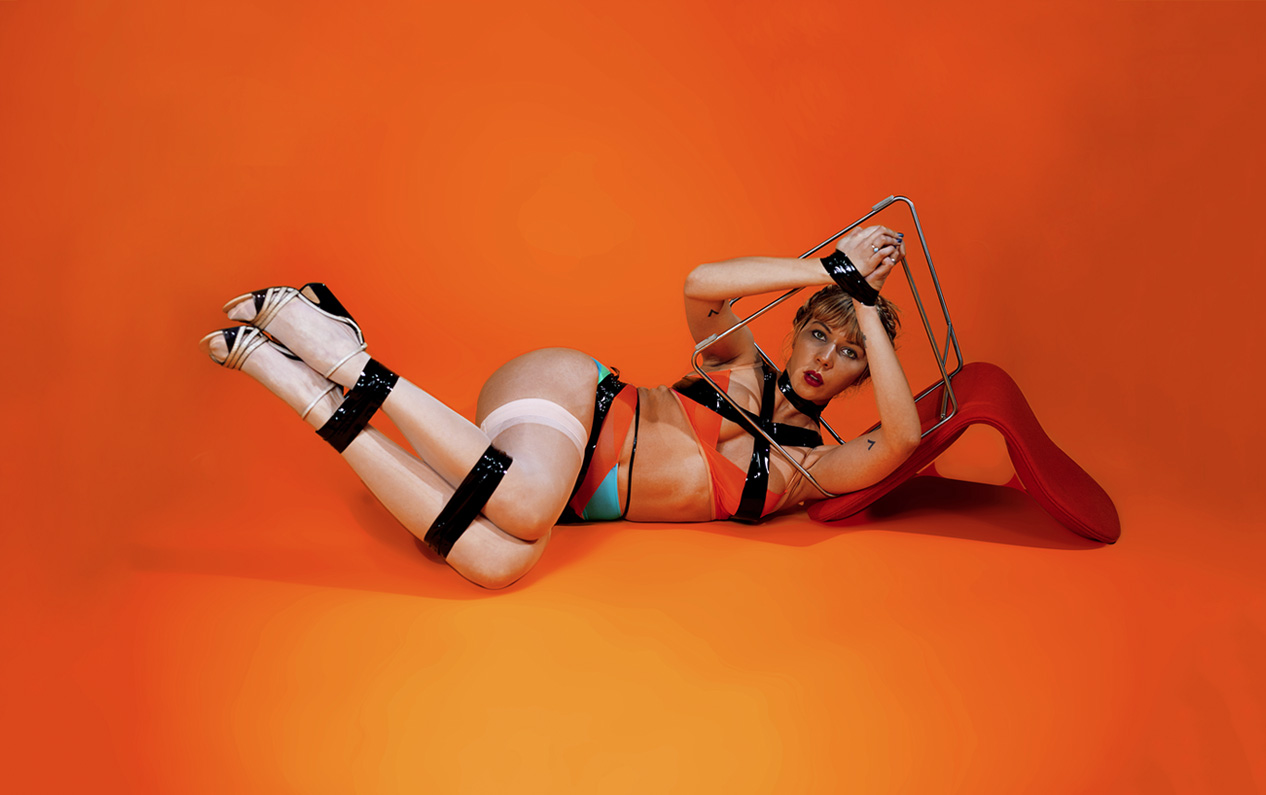


#Waxchick
takes explicit, hyper-sexualised visuals inspired by contemporary advertising and Pop Art, to generate a dialogue on women's representation in public media and the arts.
Waxchick made waves in 2014, by capturing a sense of punk activism with the slick, glossy voice of the media industry. A billboard street-art project and short film, engaging creatives and members of the public alike with its bold and socially driven voice.
Following a discussion with artist Allen Jones who is famous for his table sculptures, Vasilisa decided to raise the question of ownership of the female body by creating a direct link with Allen's work through posing herself as table in a self-portrait. This opened up a series of self portraits titled WAX, a short film exploring female sexuality vs male dominance and a series of images titled Disarchy which deconstruct the 'photoshop-perfection' of the WAX series.
With this, the WAX series took to the street to pose a question to modern viewers - can a woman objectify herself and what is the difference?


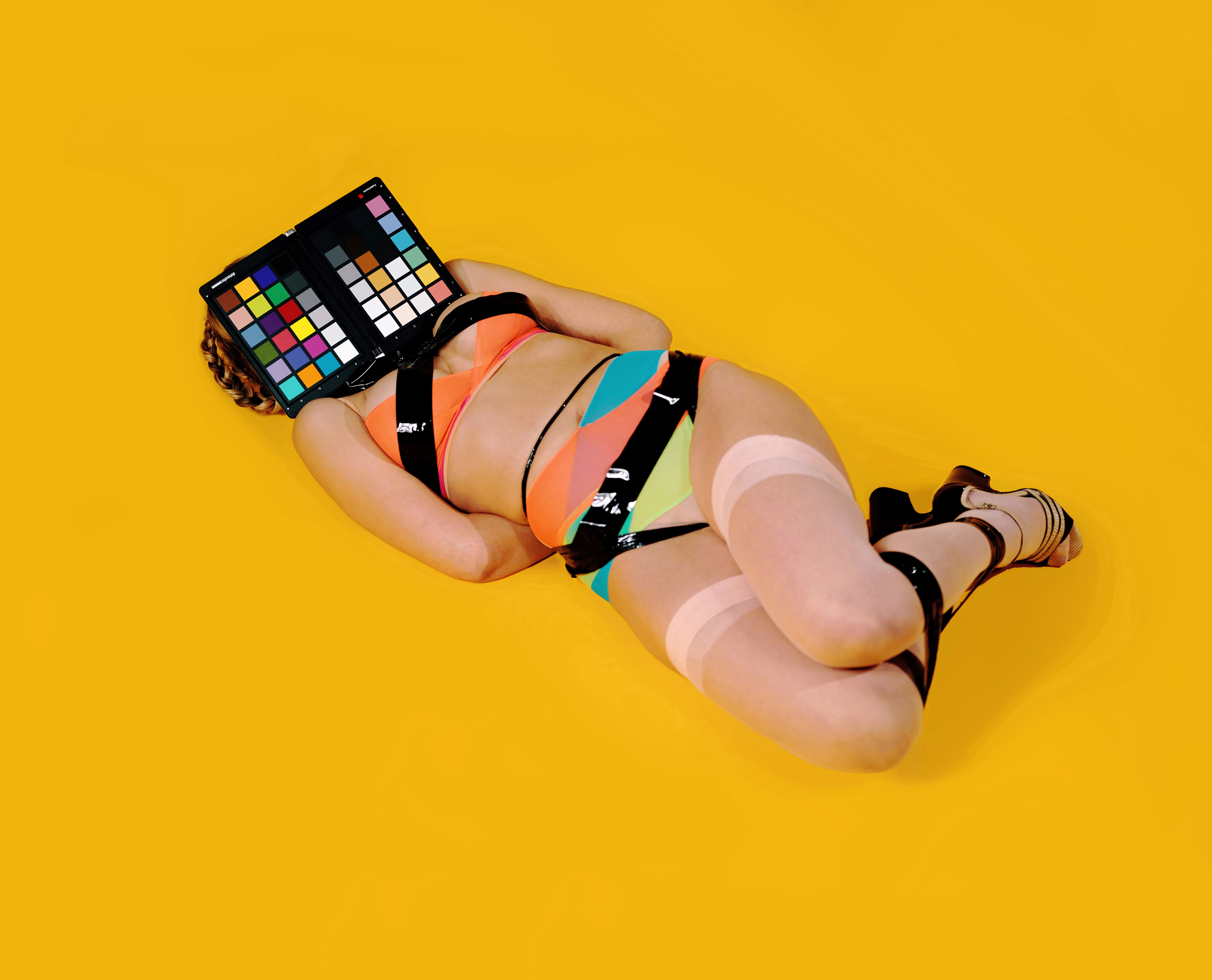
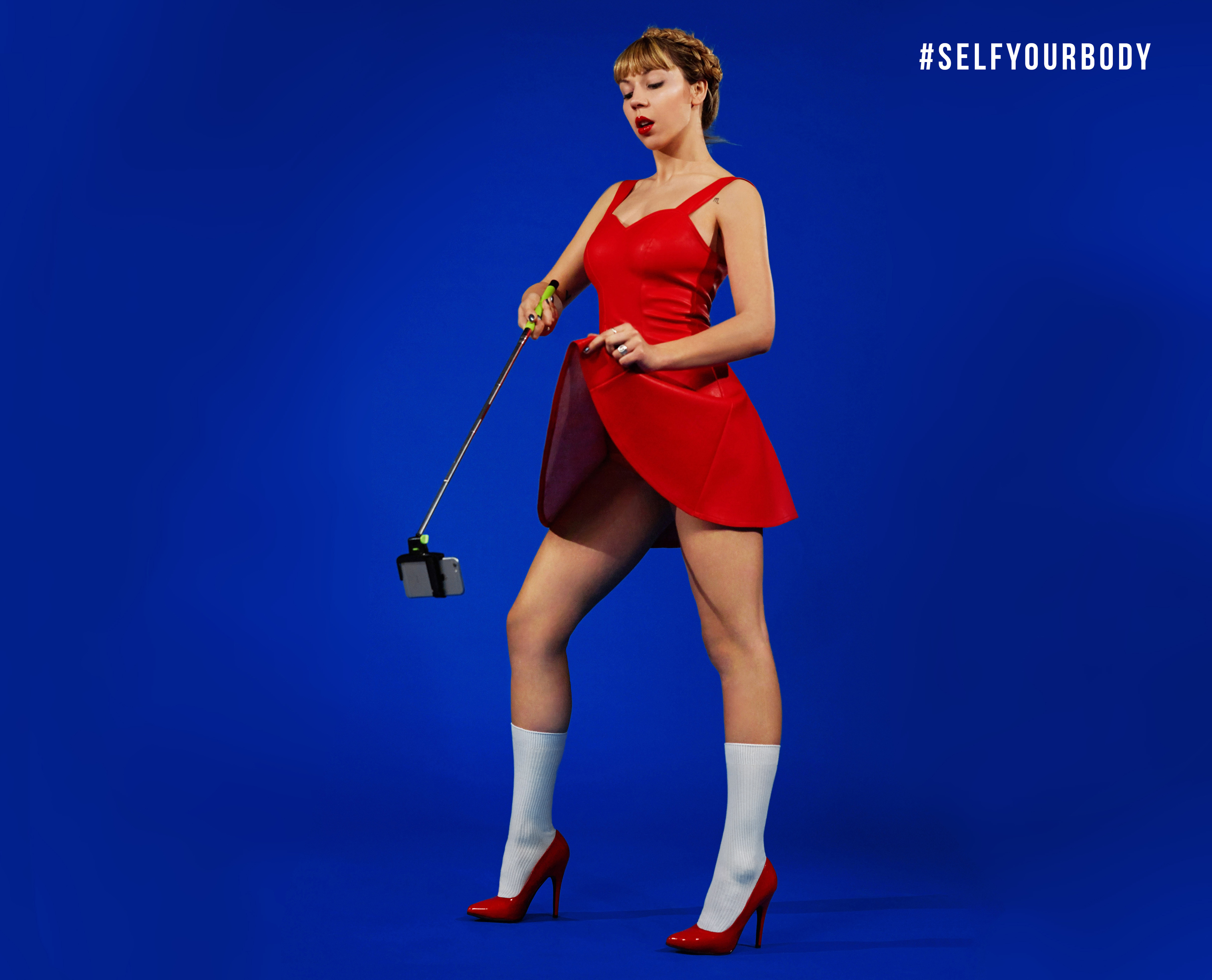
BILLBOARDS various campaigns
︎ 2016-17



